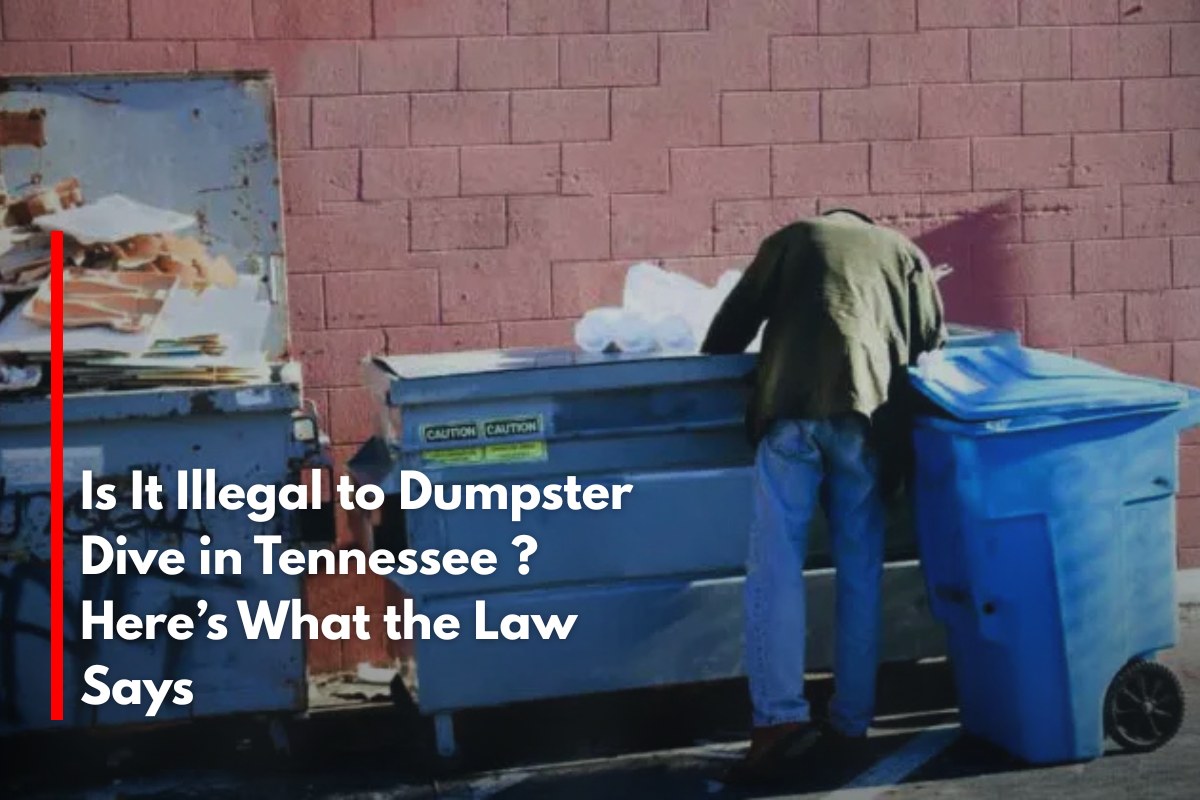Dumpster diving refers to searching through garbage or discarded items in dumpsters with the intent to find usable goods or food. It has gained popularity not only as a way to save money but also as an environmentally friendly practice to reduce waste. People often recover perfectly good or even new items from dumpsters, especially near retail stores and apartment complexes.
The Legal Status of Dumpster Diving in Tennessee
In Tennessee, dumpster diving is not explicitly illegal, but it comes with legal caveats related primarily to trespassing laws. Since most dumpsters are located on private property, going onto private land to access dumpsters can result in trespassing charges if done without permission.
Tennessee law does not specifically prohibit dumpster diving itself, but entering private property without authorization to engage in dumpster diving can lead to legal trouble.
Trespassing and Property Rights
Most dumpster diving cases hinge on the element of trespassing. If the dumpster is on private property—for example, behind a business, in a gated area, or fenced location—divers need property owner consent to avoid trespassing violations. Some municipalities or businesses post “no trespassing” signs near their dumpsters, which legally restrict access. Violating these rules can lead to misdemeanor charges or fines, even if the act of dumpster diving alone is not illegal under state law.
Public Property and Curbside Waste
If dumpsters or trash bins are placed at curbside or on public property, items discarded there are generally considered abandoned and thus available for the public to take. This means dumpster diving in these locations is less likely to be contested legally.
However, individuals should always verify local ordinances as cities or counties might have specific rules governing waste collection areas or public health and safety standards.
Safety and Sanitation Considerations
Tennessee state regulations emphasize proper waste disposal to protect public health and the environment. Dumpster divers should be aware of sanitation concerns, especially related to food waste, hazardous materials, or medical waste, which are strictly regulated.
Removing hazardous waste or contaminated materials from dumpster sites can be dangerous and potentially illegal. Safety precautions and awareness of health risks are essential when engaging in dumpster diving.
Best Practices for Dumpster Divers in Tennessee
Seek permission from property owners before diving in dumpsters located on private property.
Avoid locked or fenced dumpsters, as accessing them may lead to trespassing charges.
Be aware of local ordinances that may restrict dumpster diving in certain areas.
Practice safety hygiene, wearing gloves, and avoiding hazardous materials.
Respect “no trespassing” signs and be prepared to leave promptly if asked by authorities or property owners.
Dumpster diving in Tennessee is generally legal but often complicated by trespassing laws because most dumpsters reside on private property. While there is no state law that prohibits diving through trash, property rights and local regulations take precedence.
Divers should prioritize obtaining permission, avoid restricted areas, and stay informed about public health requirements. By following these guidelines, dumpster diving can be a lawful and ethical way to reduce waste and find useful items in Tennessee.
Sources
(https://www.rolloffdumpsterdirect.com/dumpster-diving-illegal/)
(https://103gbfrocks.com/dumpster-diving-legal-tennessee/)
(https://demo-fe.chennairivers.gov.in/hjo/is-it-illegal-to-dumpster-dive-in-tn)
(https://www.dcsltd.co.uk/post/dumpster-diving-laws-in-tennessee)
(https://www.legalmatch.com/law-library/article/is-dumpster-diving-illegal.html)











